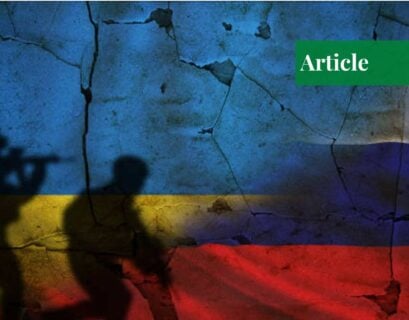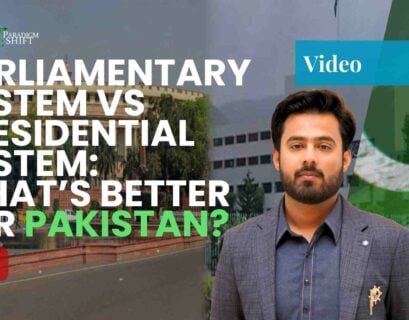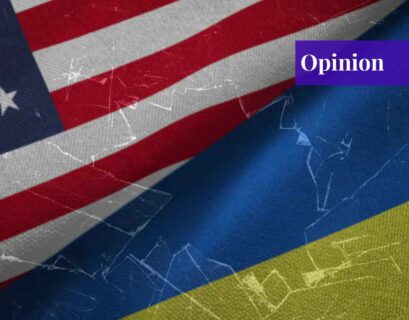Tiejun Huаng graduated from the Department of Foreign Languages of the University of the Chinese Academy of Sciences and is currently interning at the National College of Ireland. The author is fond of political science and, in particular, the peculiarities of the political structure of the Middle East.
Why is Turkey Opposing Finland & Sweden?
Ankara has once again indicated its opposition to the NATO bids of Sweden and Finland in case of their failure to keep their promises concerning “concrete steps” on counter-terrorism. Erdogan’s threat to block the expansion of NATO came after Sweden and Finland failed to comply with the agreement signed during the 2022 Madrid Summit.
As per the deal, Turkey demanded the extradition of 33 members of the Kurdistan Workers’ Party (PKK), fighters of the People’s Protection Units (YPG) – the armed wing of the Democratic Union Party (PYD) acting in Kurdish-populated areas in Syria – as well as followers of a US-based Islamic preacher Fethullah Gülen. Although Turkey had lifted its veto on Sweden and Finland’s membership bid in June 2022, it once again threatened to freeze the Scandinavian states’ NATO bid.
Turkish Minister of Justice Bekir Bozdağ vowed that Turkey would block the entry of such important allies in view of the recent crisis. More notably, it had been done right before President Biden officially signed NATO accession protocols for Finland and Sweden. He also urged the remaining governments of the alliance members “to complete their own ratification progress as quickly as possible.”

Thus, the allied states were placed in a rather ambiguous position. Regardless of what they do, Turkey will be blocking the process of joining NATO until he considers his demands to Stockholm and Helsinki are entirely fulfilled. It was wrong and premature to draw conclusions based on the 2022 Madrid Summit results that Ankara would be satisfied with the mere recognition of its role in NATO and lifting the arms embargoes against Turkey.
The lifting of the embargo was actually the most significant and also thoroughly specified part of the ten-point memorandum on counterterrorism and exports signed during the summit. Meanwhile, the mechanism for implementing the remaining items, primarily the extradition of the 33 militants, has not been clearly defined. Such an outcome of trilateral talks in Madrid appeared to be satisfactory for Sweden and Finland.
They retained the possibility to use the vagueness of the deal’s wording, features of national legislation, and the norms of international law as an excuse for the actual refusal to comply with the agreement on Kurds. Yet, subsequent events have demonstrated Erdogan’s ability for turning a swiftly heating up international situation to his advantage.
Turkey’s Strategy
The Turkish leadership has taken an uncompromising stand on the issue of recognizing Ankara’s opponents hiding in Scandinavian countries as “terrorists” and their immediate extradition to Turkey. Since the approval of the Turkish parliament is necessary for Turkey to support Sweden and Finland’s NATO membership, or the expansion of NATO Erdogan said, “‘If they fulfill their duties, we will send it to the parliament. If they are not fulfilled, it is out of the question.”
As soon as the arms embargo was lifted, Turkey sought to buy 40 Lockheed Martin-made F-16 fighters as well as nearly 80 modernization kits for Turkish warplanes from the US. Turkey competently found the right moment when the West particularly needs to show its unity and support a strong ally. Now, it is firmly determined to use it. Erdogan sees an opportunity for an unprecedented interest rate hike in his successful haggling with the USA, the EU, and NATO.
The claims against Sweden and Finland about the extradition of Kurdish “terrorists” is a trial balloon in a geopolitical game launched by Turkey. Erdogan has accumulated a vast number of serious problems in regard to his relations with international partners. He wouldn’t miss a fortune-offered chance to solve many of them at once.
Turkey’s Possible Goals
The Armenian Genocide
The formal recognition of the Turkish Republic of Northern Cyprus (TRNC) as a sovereign state by NATO, with a prospect of joining the alliance and the EU, might become the first contingent claim of Turkey. This NATO expansion may be justified by the need to stand united in front of military, economic, energy, and demographic crises.
At the same time, one should bear in mind that Turkey repeatedly expressed its strong disagreement with the position of the USA and some European countries concerning the 1915 Armenian genocide. Ankara chronically protests against each official acknowledgment of the Armenian demands by any NATO ally and denies its responsibility for killing tens of thousands (up to a million according to some sources) of Armenians in the Ottoman Empire.
The current changes in the international climate are unprecedented in scale and nature. Erdogan, therefore, has a good reason to demand from his current and future political partners, primarily Sweden, to recall the recognition of the Armenian genocide and to accept Ankara’s version of the 1915 tragedy without any unambiguous assertions of Turkey’s guilt.
Kurds in Syria
For Turkey, this situation also opens up a large field of possibilities for political bargaining with the USA. This applies not only to the prospect of supplying Ankara with the F-35 – the newest type of fighter jet – but also to establishing a 30-kilometer deep “safe zone” in northern Syria, on the territory under the control of YPG – a very sensitive issue for Turkey.
The United States policy on Syria, supported by Sweden and Finland, forced Erdogan to suspend Operation Peace Spring (2019) to which Kurdish refugees made a significant contribution as well. But now when the situation has changed, Ankara expects Washington to change its attitude towards Turkish actions in the region. They may even try to convince the White House to withdraw its military personnel from the area.
Successful resolution of the “Kurdish issue” in northern Syria may create favorable opportunities for expanding the experience to the Kurdish region in South Iraq. This would become another victory for Erdogan in the eyes of his people and of the global community.
Short-term Goals
Other short-term goals of Turkey may include participation in already existing and upcoming initiatives of Common Security and Defence Policy (the European Defence Union) and joining PESCO—the EU program for the development of cooperation on security and defense. Previously, all attempts of Ankara to become a member of PESCO were blocked by Athens. Now, Erdogan has the official commitment of Sweden and Finland to provide the widest possible range of assistance to Turkey’s participation in such EU initiatives.
The agreements achieved by Turkey at the NATO summit in Madrid extend beyond the alliance into the area of EU responsibility. In turn, this creates conditions for overcoming the hovering in the list of associated members of the European Union, the “eternal bane” of Turkey. Erdogan may well succeed in getting the EU membership for his country, given the Union’s strong interest in international support.
We may witness the realization of any of these sceneries, either together or separately, or any of more fantastic ones. Erdogan is a tough and pragmatic politician. He will certainly use even the slightest chance to achieve his goals. Even if they are outside the spheres of interest, or moral and legal norms of his partners, be they separately taken countries, like Sweden and Finland, or their associations, like the North Atlantic Treaty Organization and the European Union.
If you want to submit your articles and/or research papers, please check the Submissions page.
The views and opinions expressed in this article/paper are the author’s own and do not necessarily reflect the editorial position of Paradigm Shift.


















